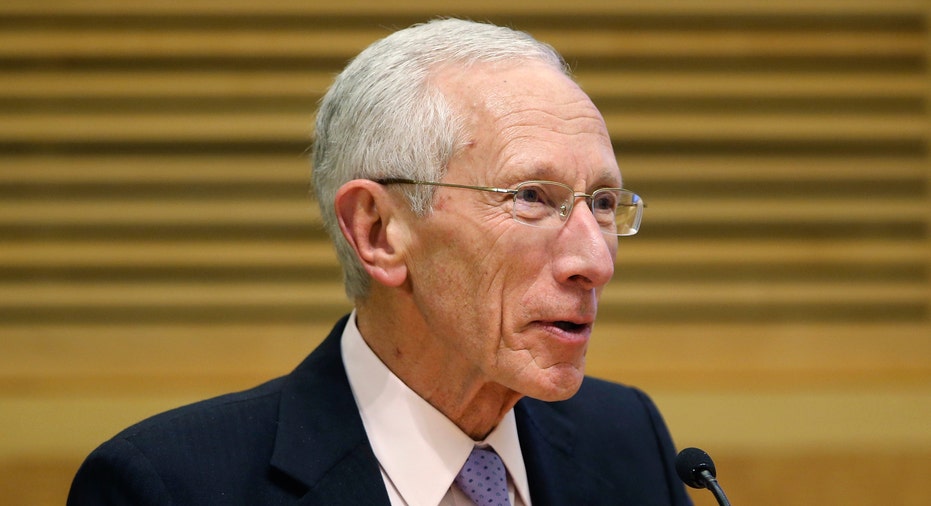Fed's Fischer: Labor Market Nearly at Full Employment, Inflation 'Very Low'

The Federal Reserve's No. 2 official said the U.S. labor market is nearly back to full health, but that inflation remains weak. "The data have to drive us, and we have to ask ourselves, where are we?" Fed Vice Chairman Stanley Fischer said Monday during an interview on Bloomberg TV. "And we're in a situation with very low inflation--nearly full employment, but very low inflation." The Fed has set a goal of 2% annual inflation, but U.S. price growth has undershot that target for more than three years. The Fed's preferred inflation gauge, the Commerce Department's personal consumption expenditures price index, rose 0.3% in June from a year earlier, and prices excluding food and energy climbed 1.3% on the year. The labor market is in stronger shape: nonfarm payrolls have posted steady gains and the unemployment rate in July held steady at 5.3%, just above the 5% to 5.2% range that Fed officials in June said is normal in the long run. Mr. Fischer said Monday that "a large part" of inflation's current low trajectory is "temporary" and "has to do with the decline in the price of oil, it has to do with the decline in the price of raw materials. These are things which will stabilize at some point, so we're not going to be as low as we are now forever and we need to be looking ahead as we go." He didn't offer a prediction for the possible timing of the Fed's first rate increase, but said "the concern about the situation is, not to move before we see inflation as well as employment returning to more normal levels." The Fed's so-called dual mandate requires the U.S. central bank to seek both maximum employment and stable prices. The Fed has kept short-term interest rates pinned near zero since December 2008. Most private forecasters surveyed by The Wall Street Journal last month said the Fed would begin to raise rates at its Sept. 16-17 policy meeting. Federal Reserve Bank of Atlanta President Dennis Lockhart last week pointed to a September move, barring a significant deterioration in the economy. "I think there is a high bar right now to not acting, speaking for myself," Mr. Lockhart said in an interview with The Wall Street Journal. But Fed Governor Jerome Powell told CNBC last week that "nothing has been decided, and I haven't made any decisions about what I would support, and certainly the [rate-setting Federal Open Market] Committee hasn't." Mr. Fischer, who joined the U.S. central bank in June 2014, is the former governor of the Bank of Israel, former first deputy managing director of the International Monetary Fund and former chief economist of the World Bank.



















